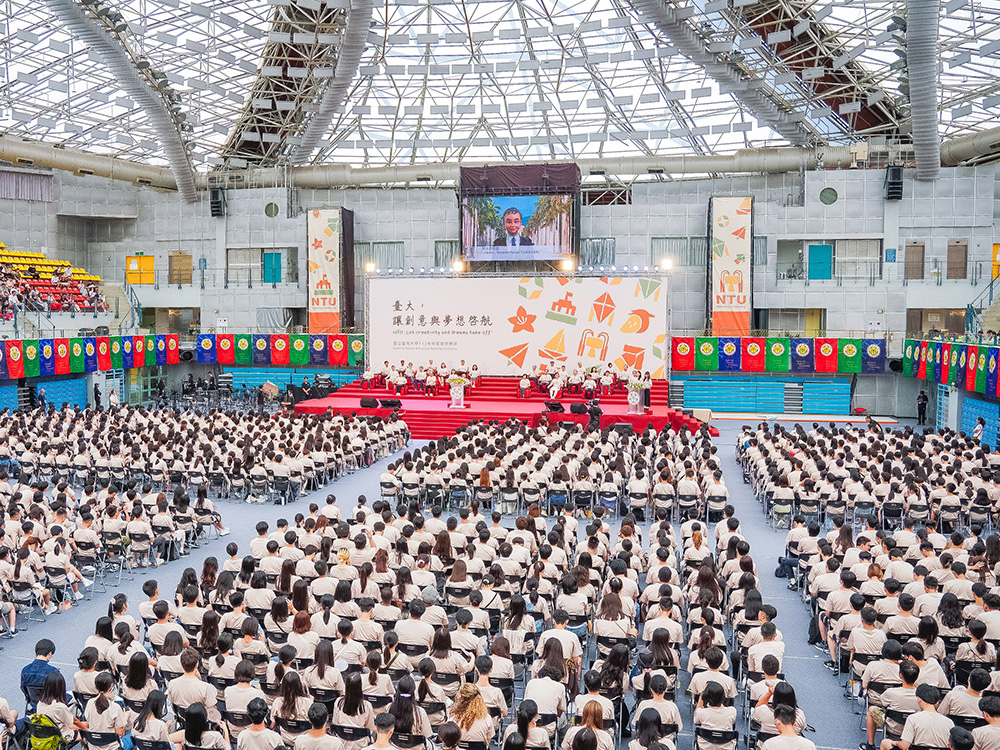
NTU Opening Ceremony: “Where Creativity and Dreams Take Flight”
瀏覽器版本過舊,或未開啟 javascript
請更新瀏覽器或啟用 javascript
Spotlights
Awarder and awardees at the ceremony of the 24th TECO Award. Image: TECO Technology Foundation
Dr. Yao-Wen Chang delivers an address at the TECO Award ceremony. Image: TECO Technology Foundation
TECO Award winner Dr. Yao-Wen Chang. Image: TECO Technology Foundation
Dr. Yao-Wen Chang and his students. Image: TECO Technology Foundation
Dr. Yao-Wen Chang and his students. Image: TECO Technology Foundation
Honors won by Dr. Yao-Wen Chang and his team. Image: TECO Technology Foundation
TECO Award winner Prof. Tung-Han Chuan Image: Prof. Tung-Han Chuan
Inhibition of Ag Ion migration in Ag-alloy bonding wire. Image: Prof. Tung-Han Chuan
Dynamic fatigue reliability test for Ag-alloy wire bonded electronic packaging products. Image:Prof. Tung-Han Chuan
TECO Award winner Dr. Patrick C.H. Hsieh. Image: Dr. Patrick C.H. Hsieh
Three NTU professors won the 24th TECO Award 2017, claiming more than half of the five awards given this year. President of Academia Sinica, James C. Liao (廖俊智), granted the prize and trophy to each award winner on November 4, 2017. Among the three TECO award winners from NTU are Dr. Yao-Wen Chang (張耀文), Dr. Tung-Han Chuang (莊東漢), and Dr. Patrick C.H. Hsieh (謝清河). The three winners were commended for their distinguished contributions to the respective fields of electrical engineering / computer science / communication technology, materials and chemical engineering, and biomedical sciences.
To develop high-tech talent, promote forward-looking thinking, and facilitate social progress, TECO Electric and Machinery established the TECO Technology Foundation in 1993. In the same year, the TECO Award was initiated by the foundation to recognize individuals who have made distinguished contributions to R&D in Taiwan, and to evoke people’s awareness of the importance of technological innovation to social progress. Starting from the sixth year, the foundation introduced the humanities category to the TECO Award in the hope of achieving techno-cultural synergy.
Winner: Dr. Yao-Wen Chang (Science and Technology: Electrical Engineering / Computer Science / Communication Technology)
Dr. Yao-Wen Chang, a distinguished professor of electrical and electronics engineering at NTU who also serves as NTU’s Deputy Vice President for Academic Affairs, was awarded the TECO Award for his contributions to the field of electronic design automation (EDA) and manufacturability, as well as his development of the NTUplace4 circuit placer which is the champion of all the world’s top three EDA contests. Dr. Chang has also developed a floorplan representation that is generally considered the best available now and has been extensively used in modern circuit design tools. Dr. Chang and his team’s research and achievements in the past two decades have been covered by the most prestigious electronics industry magazine EE Times for more than 10 times. The media praised Dr. Chang as “a microelectronics pioneer in EDA” (2013) and Dr. Chang and his team as “the best engineering minds on the planet” (2015). Dr. Chang also claimed many firsts in the international community of EDA and electrical / electronics engineering research. He was the first non-US/-European IEEE Council on EDA (CEDA) Executive Committee Member who is currently its Vice President of Conferences and will be its President-elect (2018-2019) and President (2020-2021). He was also the first Taiwanese to serve as the general chair of the two top conferences, ISPD (2011) and ICCAD (2014), and the first Taiwanese IEEE Fellow recommended by CEDA.
Winner: Dr. Tung-Han Chuang (Science and Technology: Chemical Engineering / Material Technology)
Dr. Tung-Han Chuang, a distinguished professor of materials science and engineering at NTU, is another TECO award winner this year. The key research that won Dr. Chuang the TECO Award is his development of the innovative Ag-alloy wire for the interconnection of IC and LED packages. The newly-developed Ag-alloy wire not only optimizes alloy composition but also introduces a large number of annealing twins with low interfacial energy into the grain structure via the special drawing and annealing processes, enabling the wires to possess superb mechanical properties and thermal stability without unduly affecting the high electrical conductivity of silver. The price of the Ag-alloy wire is about 20% lower compared with the traditional gold wire, while its workability in wire bonding and its reliability in packaging products are similar to those of the gold wire. This Ag-alloy wire has even outperformed the Pd-coated copper wire, a wire material promoted by the packaging industry several years ago, to gradually become a mainstream material in the market of the IC and LED industry. This invention not only broke international manufacturers’ monopoly of the market of IC and LED bonding wires, but also filled the gap in the domestic supply and demand chain in Taiwan. In addition to inventing this key material, Dr. Chuang’s other significant contributions include the development of high-efficiency thermoelectric materials and modules, ultra-fine solder ball for flip-chip assembly technique, metal / ceramic low-temperature joining technology, and superplastic forming / diffusion bonding process.
Winner: Dr. Patrick C.H. Hsieh (Science and Technology: Biomedical Sciences / Agricultural Technology)
A research fellow at Academia Sinica and a joint professor of the NTU Graduate Institute of Medical Genomics and Proteomics, Dr. Patrick C.H. Hsieh received the TECO Award for his dedication to the study of myocardial and vascular regeneration, the integration of biology, medicine, engineering, and other fields, the use of stem cells to explore the molecular mechanism of myocardial repair, and the use of nanotechnologies to promote myocardial tissue repair and angiogenesis. With solid training in both clinical medicine and biomedical research, Dr. Hsieh and his team have helped build the Taiwan human induced pluripotent stem cells (iPSC) service alliance, as well as established an iPSC bank to further the development of cutting-edge biotechnologies such as disease etiology, drug development, cell therapy, and personalization / precision care, laying the foundation for Taiwan to become Asia Pacific's biotechnology center. In the team’s endeavor to benefit patients with ischemic cardiovascular disease, cell therapy has been approved in Taiwan for the first phase I/IIa clinical trials in humans. In the long run, Dr. Hsieh and his team hope to replace the past foundry model, cultivate high-level biotechnology talent, and contribute to the development of prospective medical technologies for cardiovascular regeneration, thereby promoting Taiwan as an Asia-Pacific hub in cardiovascular medicine.
Reference: Brochure for the 24th Ceremony of the TECO Award.

NTU Opening Ceremony: “Where Creativity and Dreams Take Flight”
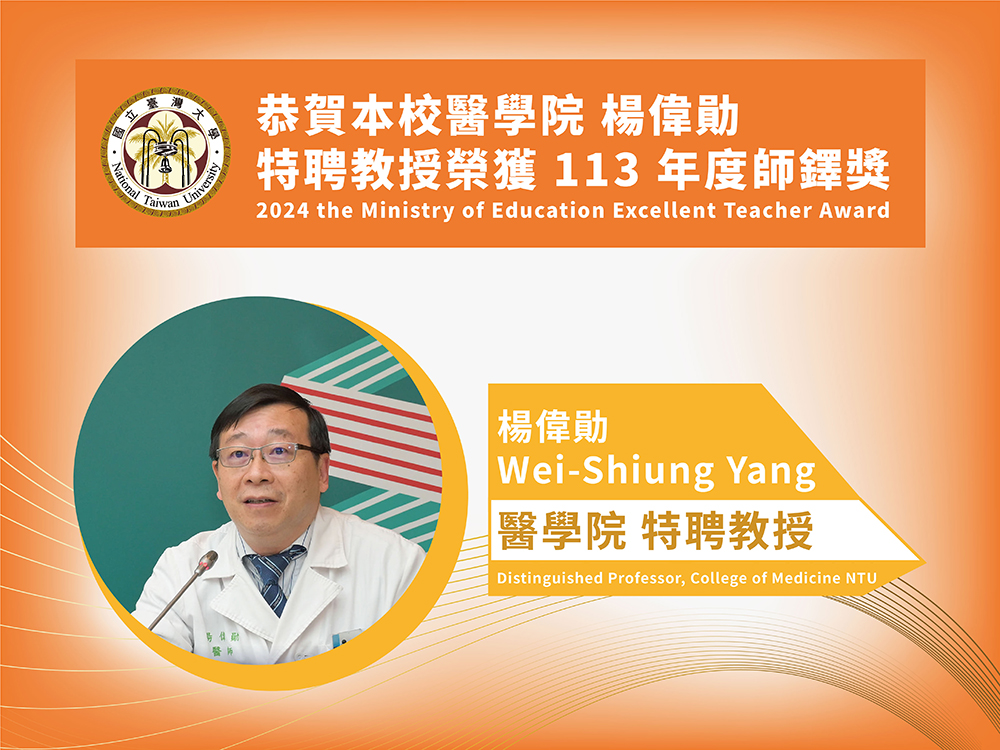
Prof. Wei-Shiung Yang wins MOE National Excellent Teacher Award
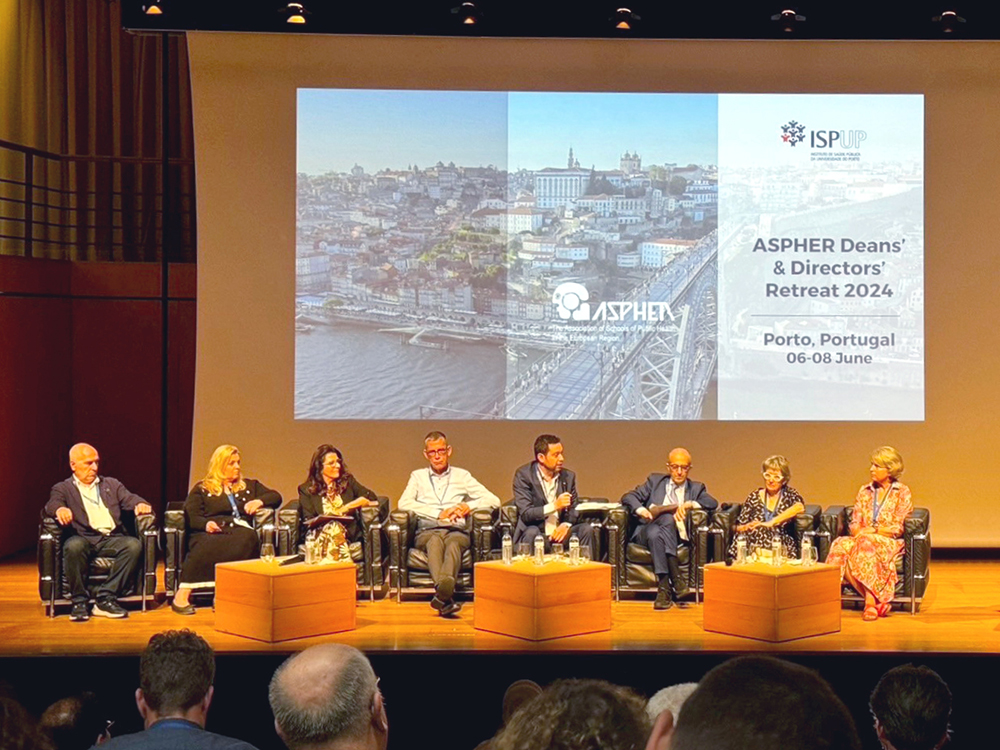
NTU College of Public Health's Global Health Program Joins the Association of Schools of Public Health in the European Region
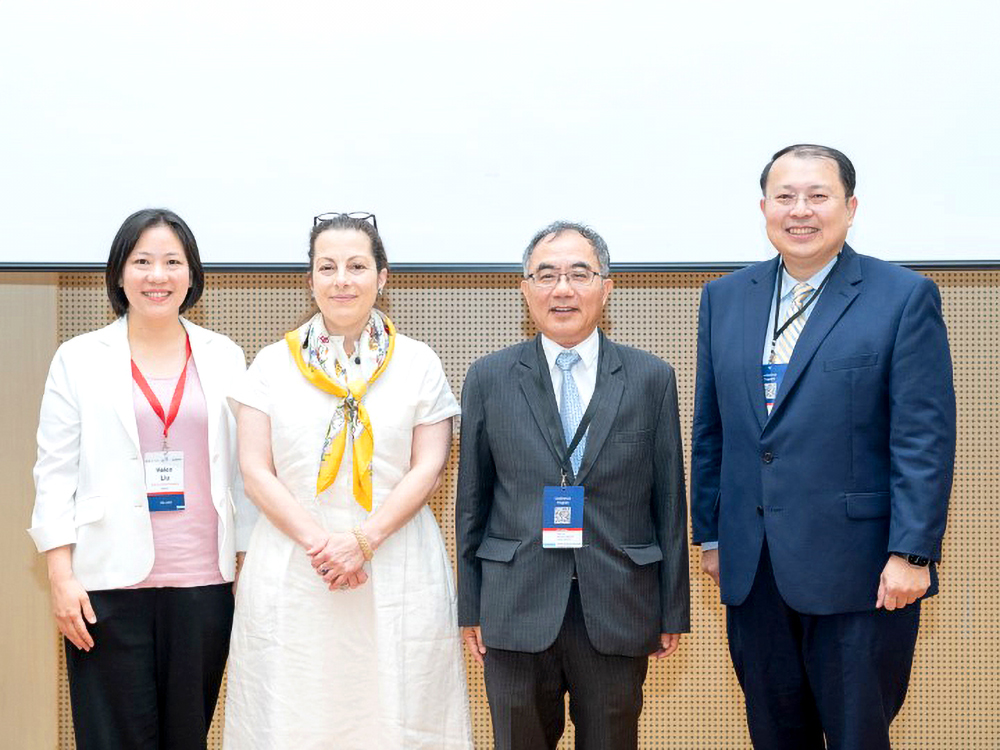
NTU hosts a successful dg.o 2024
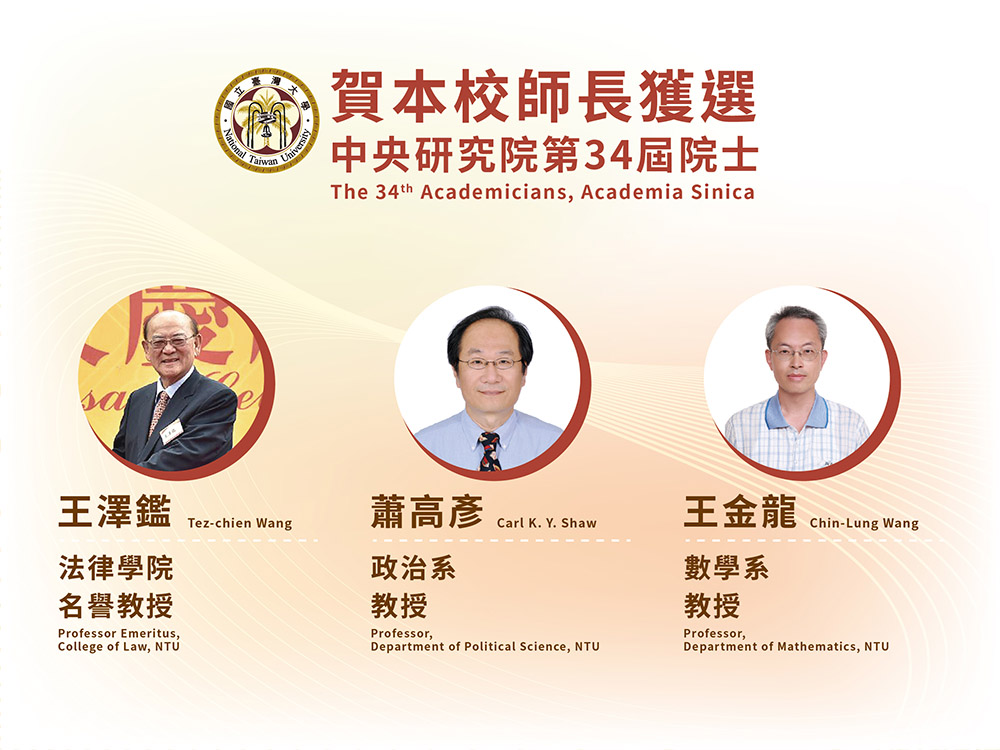
Congratulations to NTU faculty members elected as 34th AS academicians
Current Spotlights